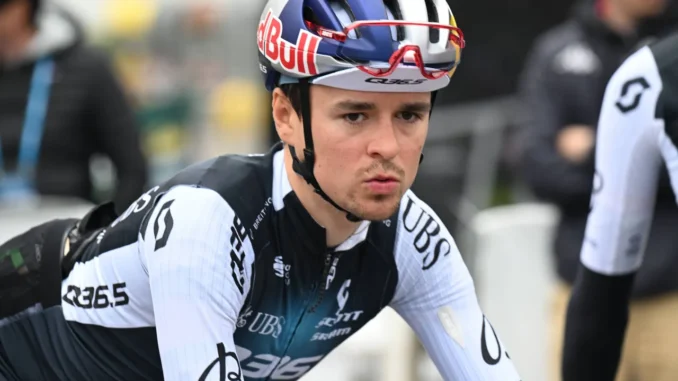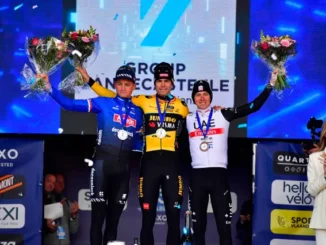
Tom Pidcock continues to impress this season, showcasing strong performances in Tirreno-Adriatico. The 25-year-old Brit from Q36.5 secured second place behind Andrea Vendrame on stage three, finished eighth in a reduced sprint on stage four, and claimed sixth in stage five. These three key stages have served as valuable preparation for Pidcock, who, after his intense battle with Tadej Pogačar in Strade Bianche, is now setting his sights on Milan-San Remo. His form appears to be excellent.
Pidcock has been in top shape for a while now. As Q36.5’s new team leader, he has already secured two stage wins at the AlUla Tour, another at Ruta del Sol, and made headlines at Strade Bianche, where he pushed Pogačar to the limit before finally cracking on the penultimate gravel climb. Heading into Tirreno-Adriatico, Pidcock tempered expectations, simply hoping for a tough week of racing. He certainly got one, with stages three and four marked by relentless rain and strong winds that tested the entire peloton. Fortunately, stage five brought dry conditions, but the real challenge lies ahead with Saturday’s summit finish, which will decide the general classification.
Reflecting on the rain-soaked stages, Pidcock suggested they weren’t a true indicator of form. When asked whether these efforts were a good test ahead of Milan-San Remo on March 22, he acknowledged the strategic complexity of that race, where every decision can make or break a rider’s chances. Asked if he had the power to respond to attacks on the Poggio, he simply laughed, saying, “I’m feeling good, so let’s find out!”
His encounters with Mathieu van der Poel and Filippo Ganna in Tirreno-Adriatico may offer insights into their Milan-San Remo potential alongside Pogačar. However, Pidcock downplayed the significance of these battles, noting that the rain slowed the race, limited power output, and dulled the quality of the sprints. He believes the final stages will provide a clearer picture.
Stage five was expected to be a decisive test, with Pidcock and Q36.5 taking control. However, a headwind on the final climb prevented major shakeups, allowing more riders to stay in contention. Despite this, Pidcock was pleased with his team’s performance, even though he expressed mild frustration about the conditions. He still managed to attack on the final climb and put pressure on the descent tactics he intends to use in Milan-San Remo.
Although he admitted to feeling heavy-legged initially, Pidcock found his rhythm as the race intensified. The grueling rainy stages had taken a toll, and he avoided unnecessary risks on an unfamiliar descent, which he deemed too dangerous given the conditions. However, he won’t hold back on the Poggio, where the real action will unfold.



Be the first to comment